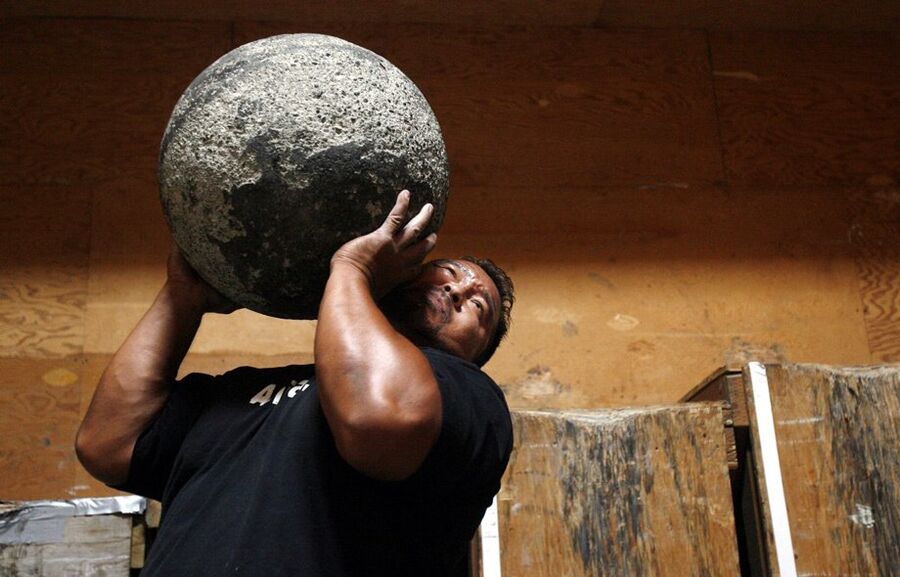Prostatitis and hemorrhoids are the most common diseases in men over the age of 40. Moreover, in some cases, both pathologies can develop in parallel, which greatly impairs the quality of human life. Here you need to understand what these two diseases are and what symptoms are manifested so that you can independently identify the problem and consult a specialist in a timely manner.
What are hemorrhoids: characteristics and symptoms

Hemorrhoids are varicose veins in the rectum. These veins are called hemorrhoids and form nodules when they dilate.
The main cause of the development of the disease is a violation of the outflow of blood from the lower rectum. This is for various reasons:
- sedentary lifestyle;
- excess weight;
- frequent imprisonment;
- overload;
- inflammation of the rectum.
In other words, the blood rushes to the area of the hemorrhoid, but its outflow is hindered, so it overflows the veins that are dilating. Due to the expansion of the veins, there is a change in the tissue of the corpora cavernosa located below the rectal mucosa. These parts swell and increase in size, forming so-called hemorrhoids.
Nodes can be internal or external. The external nodes are the result of the weakening of the sphincter muscles, due to which the internal nodes move and fall out of the anus. The number of internal or external formations in the rectum can vary, from one to several nodes. Moreover, the more nodules, the more serious the symptoms of the disease.
Hemorrhoids are most often chronic, with periodic exacerbations.
The disease develops slowly, the symptoms remain invisible for a long time, which explains the main problem of hemorrhoids - late diagnosis. In the initial phase, the symptoms are mild:
- mild edema of the lower rectum;
- periodic itching in the anus;
- burning and pain after stool.
Symptoms worsen with constipation - severe pain and tingling when urinating. At the same time, mucus can be released from the rectum, which further irritates the mucous membrane, increasing the burning sensation.
Pronounced hemorrhoids are manifested by inflammation of the nodes. This is accompanied by terrible pain. The nodules are damaged when emptying the bowel, so the blood is in the stool.
Over time, the cavernous bodies of the rectum can become severely deformed, as a result, the nodules fall out and must be literally fixed with the fingers in the anus.
Basic concepts of prostatitis

Prostatitis is an inflammation of the prostate. This disease is contagious and non-infectious in nature, it can occur in acute and chronic forms.
If we have in mind both prostatitis and hemorrhoids, special attention should be paid to non-infectious chronic inflammatory processes in the prostate. This disease is often called congestive prostatitis.
The essence of the problem is in the violation of prostate trophism. Trophism means microcirculation of blood and lymph outflow. Deterioration of these processes leads to the following changes:
- secretory prostate stagnates;
- organ swells;
- the secretion in the prostate thickens;
- an inflammatory process develops.
The result of the violation of trophism is a swollen and enlarged prostate, which compresses the surrounding tissues and organs (bladder neck, lower part of the urethra), due to which vivid symptoms of prostatitis develop.
The main causes of congestive prostatitis are:
- sedentary lifestyle;
- lack of regular sex;
- excess weight;
- bad habits;
- unbalanced diet.
As a rule, this disease is faced mainly by men older than 40 years.
Doctors often call congestive prostatitis "a disease of the office worker", emphasizing the connection between the violation of prostate trophism and a sedentary lifestyle.
The symptoms of the disease are as follows:
- frequent need to use the toilet;
- pain in perineum, rectum, bladder;
- weakening of urine flow during urination;
- feeling of constantly full bladder;
- ejaculation disorders;
- deterioration of potency.
Ejaculatory disorders are manifested either by rapid ejaculation with short-term stimulation of the penis, or by the inability to reach orgasm during intercourse. The first is associated with increased prostate tone, the second - with a violation of organ contractility.
What connects prostatitis and hemorrhoids?

The connection between prostatitis and hemorrhoids is obvious - common causes of development. In both cases, the disease develops as a result of impaired blood circulation and lymph flow. In this case, prostatitis causes thickening of the juice in the prostate due to violation of trophism, and hemorrhoids are caused by violation of venous outflow of blood from the rectum.
The following reasons lead to the following violations:
- sedentary lifestyle (sedentary work);
- lack of regular sex;
- obesity;
- bad habits.
Most modern people work in offices, that is, they spend most of their time sitting. In the conditions of modern life, few people can find enough time for active recreation and sports, and they spend most of the day in a sitting position. The result is poor circulation in the pelvis and lower extremities. If a man has problems with the veins in his legs at the same time, the problems with the pelvic organs are only a matter of time. As a rule, varicose veins are also in the age group of people at risk of developing prostatitis.
It seems that the lack of regular sex should only affect the prostate, but what does hemorrhoids have to do with it? This is exactly the case when both diseases are related, and the development of congestive prostatitis leads to dilation of hemorrhoidal veins. Poor sex life negatively affects prostate function. As a result, constipation and symptoms of prostatitis occur. An enlarged prostate presses on the surrounding tissues, including blood vessels, interfering with normal blood flow in the area. As a result, the rate of blood flow to the rectal veins changes, the venous path gradually develops, the veins dilate and hemorrhoids form. Of course, this process lasts for years, but if nothing is done, prostatitis will eventually lead to hemorrhoids.
The same thing happens with obesity. Pelvic trophism is impaired and then either prostatitis or hemorrhoids develop. If a man has not reacted in any way to the presence of one of these diseases, the development of the other should be expected over time.
The negative impact of bad habits should be considered separately. The most common addictions are smoking and alcohol abuse. Nicotine has a negative effect on blood vessels, increasing their tone. As a result, they narrow, which negatively affects the speed of blood flow. Another factor is the disruption of oxygen transport to the tissues during prolonged smoking. The result is again poor circulation in the pelvic organs and lower extremities, which leads to blockage, prostatitis or hemorrhoids.
Alcohol abuse negatively affects the functioning of the nervous and cardiovascular systems. An increase in blood pressure is often recorded, which is the cause of impaired blood flow. Thus, smoking and systematic alcohol consumption is a direct path to the development of prostatitis and hemorrhoids.
As a rule, one of these diseases develops under the influence of several factors at once. Over time, congestion spreads to all organs of the pelvis, causing the development of another disease.
Once you have determined whether hemorrhoids are associated with prostatitis, you should know that both diseases can develop in parallel. The presence of two such diagnoses complicates treatment, so consult a doctor immediately.
Treatment of hemorrhoids and prostatitis
If both diseases have gotten worse, they will need to be treated at the same time. In general, the treatment of these two diseases overlaps somewhat, so taking medication will be able to stop the deterioration.
Tablets and rectal suppositories are used to treat prostatitis. Rectal suppositories are also used to treat hemorrhoids, and the therapy is supplemented with microclysters.
Suppositories
Mild anti-inflammatory drugs are preferred. At the same time, they stop the inflammation of the prostate and reduce the manifestations of hemorrhoids.
Additionally, methyluracil suppositories may be recommended to improve local metabolic processes and strengthen immunity. Suppositories with ichthyol in the composition are often prescribed as an anti-inflammatory agent.
Microclysters to relieve inflammation
Microclysters are also used to stop the inflammatory reaction and as bowel preparations before administering rectal suppositories. At home, enemas are made from decoctions of anti-inflammatory plants - chamomile, St. John's wort, calendula.
Physiotherapy and exercise therapy
Physiotherapy is prescribed only after the alleviation of acute symptoms. It aims to improve blood circulation in the pelvic organs and can reduce the frequency of exacerbations. Electrostimulation, magnetotherapy and laser therapy are used in the treatment of prostatitis.
Because access to the prostate takes place through the rectum, such procedures have a positive effect on anal health.
Exercise therapy is prescribed to all men who are facing stagnant processes in the pelvic organs. Exercise stimulates local circulation and lymphatic drainage. They can be performed in a clinic or at home. In addition, it is useful for men to do sports, swimming, yoga, running at a moderate pace are shown.
Prostate massage for hemorrhoids
Prostate massage is the best drug for the treatment of congestive prostatitis, which is strictly contraindicated in inflammation of hemorrhoids on the background of worsening hemorrhoids. The course of the procedure will have to be delayed until the inflammation in the nodules stops. Otherwise, hemorrhoids can be damaged during the massage, which leads to heavy bleeding and can cause the spread of the inflammatory process or even infection of the site.
Preventive measures

Prevention of hemorrhoids and prostatitis is aimed at increasing the period of remission and reducing the frequency of exacerbations. Preventive measures:
- balanced diet;
- prison prevention;
- strengthening the immune system;
- Playing sports;
- regular sex life;
- rejection of bad habits.
It is important to structure the diet in a way that avoids the development of constipation. Constipation is one of the main factors worsening hemorrhoids and prostatitis, because it disrupts blood circulation. When emptying the bowel, hard feces damages the rectum and hemorrhoids, causing worsening and irritating the prostate, which is hidden by a thin septum. To prevent constipation, your doctor may also recommend special medications, such as glycerin suppositories.
























